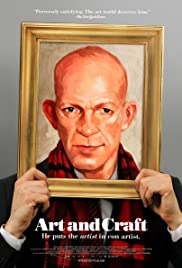
For several decades, gifted and incredibly prolific forger Mark Landis compulsively created impeccable copies of works by a variety of major artists, donating them to institutions across the country and landing pieces on many of their walls. ART AND CRAFT brings us into the cluttered and insular life of an unforgettable character just as he finds his foil in an equally obsessive art registrar.
You May Also Like

Thousands of Ukrainian children, some of them orphans, were taken to Russia after the war started. Many were sent to recreational camps in Russia by their parents to escape the shelling; they were then stuck there, sometimes for months, waiting for their mothers to bring them back. Others were fostered into Russian families, led to believe that Russia had saved them after their parents had abandoned them. This remarkable doc explores the journey of these children, and the parents trying to bring them home.
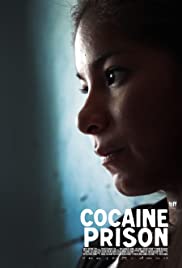
From inside Bolivia’s craziest prison a cocaine worker, a drug mule and his little sister reveal the countries relationship with cocaine.

A groundbreaking film that portrays the journey of Gigi Lazzarato, a fearless woman who began life as Gregory, posting fashion videos to YouTube from his bedroom, only to later come out as a transgender female. With never-before-seen personal footage, the film spotlights a family’s unwavering love for a child.
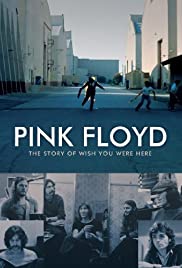
Wish You Were Here, released in September 1975, was the follow up album to the globally successful The Dark Side Of The Moon and is cited by many fans, as well as band members Richard Wright and David Gilmour, as their favorite Pink Floyd album. On release it went straight to Number One in both the UK and the US and topped the charts in many other countries around the world. This program tells the story of the making of this landmark release through new interviews with Roger Waters, David Gilmour and Nick Mason and archive interviews with the late Richard Wright. Also featured are sleeve designer Storm Thorgerson, guest vocalist Roy Harper, front cover burning man Ronnie Rondell and others involved in the creation of the album. In addition, original recording engineer Brian Humphries revisits the master tapes at Abbey Road Studios to illustrate aspects of the songs construction.
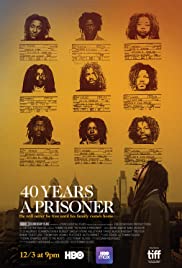
A chronicle of the controversial 1978 Philadelphia police raid on the radical back-to-nature group MOVE and the aftermath that led to a son’s decades-long fight to free his parents. Through eyewitness accounts and archival footage of the escalating tension that resulted in the controversial confrontation between police and MOVE members, the film illuminates the story of a city grappling with racial tension and police brutality with alarming topicality and modern-day relevance.

A surreal journey into singer José González’s inner world of thoughts and shadows. Staged with dark humour in the picturesque Swedish countryside around his home with Ruben Östlund’s regular creative partners behind the camera.

Fashion designer Amy Powney is at the peak of her career, but she’s troubled by her industry’s wasteful practices. Fashion Reimagined follows her transformative global journey to create a collection that’s sustainable on every level.

When Notre Dame Cathedral caught fire in 2019, Paris came perilously close to losing more than 800 years of history. As engineers rebuild, researchers use cutting-edge technology to piece together what happened and restore the cathedral.
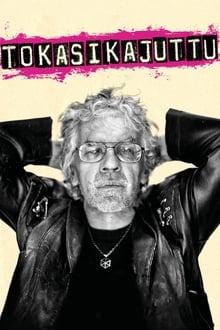
In December 2016 a remarkable chapter in music history was closed as the Finnish punk rock band Pertti Kurikan Nimipäivät (PKN) retired. Punk Voyage is a feature length documentary film about the last years of the band, with all the ups and downs included. After becoming celebrities in Finland, this incredible quartet continued to conquer new fans around the World. In its seven years run PKN played nearly 300 gigs in 16 countries. In 2015 the band was selected to represent Finland in the Eurovision Song Contest, where they played to over 100 million television spectators. However, the busy traveling and success created a lot of pressure within the band: Kari struggled with the temptations and responsibilities brought by publicity; Sami extended his territory to politics and religion; Toni’s and the band’s roadie Niila’s crush to the the same girl caused conflicts; and Pertti, tired of this all, decided to retire.
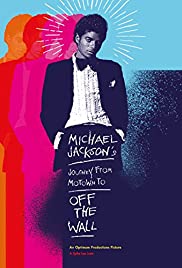
Director Spike Lee chronicles Michael Jackson’s early rise to fame.

The story behind one of the most revered and mysterious characters in WWE history and the man himself, Windham Rotunda, has never been documented, until now.

An opus in three parts, Iraq In Fragments offers a series of intimate, passionately-felt portraits: A fatherless 11-year-old is apprenticed to the domineering owner of a Baghdad garage; Sadr followers in two Shiite cities rally for regional elections while enforcing Islamic law at the point of a gun; a family of Kurdish farmers welcomes the US presence, which has allowed them a measure of freedom previously denied. American director James Longley spent more than two years filming in Iraq to create this stunningly photographed, poetically rendered documentary of the war-torn country as seen through the eyes of Sunnis, Shiites and Kurds.